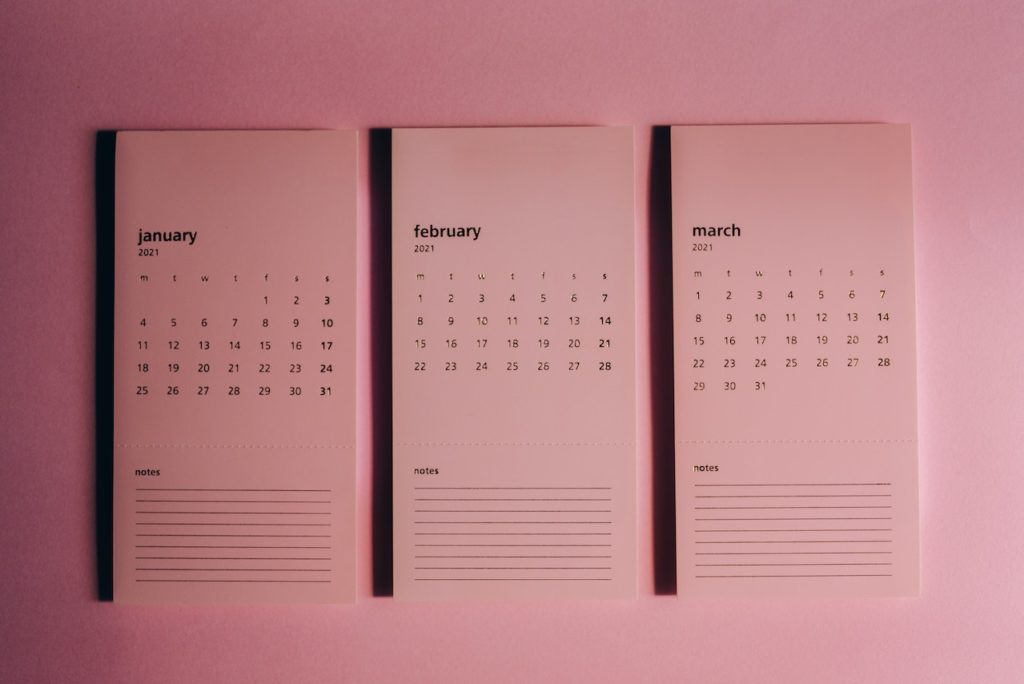Free website spells to engorge your traffic + turn your brand into gold
categorie(s)
Hola chica, I'm Ami.
welcome to the blog
Ami is a creative copywriter and the proud owner of Ami Writes. She’s been casting wordy spells for over 7 years and transforming businesses into brands is her speciality. Ami’s high-key obsessed with Harry Potter and Disney - something that has seeped its way into her own brand.
A copywriting brief can make or break your success as a copywriter. Seriously.
Working as a copywriter is the best lifestyle in the world. I know I’m biased, but if you have a love for words, a drive to make small businesses big, and ambition in buckets: there’s nothing better than copywriting.
But working on copywriting projects when the brand doesn’t belong to you isn’t as easy as it might seem on the surface.
When you work with a client, you’re taking on a piece of them. Their business is their baby. And with that, you’re under a whole lot of pressure to make sure you do their baby justice.
From their tone of voice to their core values and everything in between, you need to know as much about their business as they do. Or, at least, as close to that level as possible.
That’s where your copywriting brief comes into play. And she’s a key component in getting it right.

What is a copywriting brief?
A copywriting brief serves the same purpose any creative brief does. It collects information from a client that helps shape the project.
Every copywriter will have their own creative brief that asks questions that help shape the approach they take for your project. And while there are free copywriting brief templates out there, it’s best to create your own that mirrors your process.
My brief, for example, asks questions about your brand’s name, where it began, the services the brand offers, the goals of the project specifically, and a lot more.
A copywriting creative brief should provide the key information about:
- Your client’s brand
- The specifics of this particular project
- Your client’s competitors
- Where your client stands right now (as well as where they want to be)
- The components they want you to include or steer clear from

Why does a copywriter need a copywriting brief?
Let’s imagine, for a second, that you don’t ask your client to fill in a brief.
You onboard them, get them to sign a contract, and you start writing.
I guarantee that, by the time you share this piece of writing with them, you’ll end up having to do so many rounds of revisions and edits.
Without a brief, you have no direction.
And that direction is critical. Because, when you work on something as personal and important as someone’s business, you need to respect the angle and components the client wants to include.

Can’t I just have a call instead of making a client fill in a copywriting brief?
The alternative, it seems, is a call where you ask the questions yourself.
But there are issues, here. Having a call where you ask your client the questions that should be in your copywriting brief can lead to catastrophe.
So, let’s take a look at both of these issues.

Issue 1: forgetting answers
Probably the most obvious problem in having a Q&A call with your client instead of a copywriting brief is forgetting what they’ve said.
If you’re a copywriter who takes their work seriously – and, of course, you absolutely are or you wouldn’t be here reading about how to be a better copywriter – then you won’t start writing straight away.
You’ll need to conduct some pretty serious research first. Which means your client call won’t be as fresh.
I’m not saying you’ll forget everything. But I am saying that there may be some responses that slip your mind.

Issue 2: puts your client on the spot
Say you had a memory like Sheldon from Big Bang Theory and you remembered every single word.
It still becomes a problem when you replace a copywriting brief with a call.
Putting your clients on the spot like that might cause them to make up an answer.
Plus, a lot of these questions should require serious thought. You need to respect the fact that your clients will need some time to ponder them.

Issue 3: limited questioning
The third reason why you shouldn’t rely solely on a client call rather than a creative brief is that you need to seriously consider the questions you’re asking.
As a copywriter, it’s your job to get to know the brand inside and out. You need to know as much about your client’s business as they do themselves.
So, asking the right kind of questions is absolutely crucial if you’re going to nail this project.
While you can prepare questions for a call, by creating a brief, you can take the time you need to word your questions in a way that opens the gates to a deeper answer.

Issue 4: lack of protection
While this issue is something I hope and prey doesn’t happen to you, we do need to address it.
Sometimes, no matter how hard you work, a client doesn’t approve of what you’ve produced for them. That’s part of the job as a copywriter. And, if you’ve done everything the right way, listened to their feedback closely, and explained how you acted on this feedback, it’s often a problem with the client rather than the copywriter.
This can happen when the client doesn’t know what they want themselves, making it almost impossible for the copywriter to deliver something the client loves.
By having a copywriting brief in place, you can refer to it should your client disapprove of what you’ve done. There’s little confusion surrounding why you included certain components if the client has asked for those elements on your copywriting brief.
Here’s hoping you won’t need to avoid this problem. But, I guarantee, you’ll have at least one client like this during your time as a copywriter. Think of it as a right of passage.
But having a copywriting brief you can refer your client to will protect you, giving you the chance to explain that your work has all stemmed from what the client asked from you.

What if the client changes her mind after filling in the copywriting brief?
I tell my clients that the answers they provide on the copywriting brief are not set in stone.
It’s often the case that, after all the research is done and there’s more strategy behind the project, various components of the brief will change. And that’s okay.
What shouldn’t change is:
- The scope of the project
- The deliverables you’re handing over
- The investment amount the client is willing to pay
Often, the copywriting brief is the starting point. The foundations. The building blocks on which you – as their copywriter – can create a skyscraper.
The copywriting brief can always be revisited. But you can’t be expected to create anything until you’ve been given the direction you need.

What should be included in a copywriting brief?
If you’re trying to become a copywriter and you’re brand new or you want to make sure your brief is formatted properly to do its job, then you need to know what should be included in a copywriting brief.
In a nutshell, a copywriting brief should contain questions that give you all the information you need to get the job done to the best of your ability.
Now, this will alter from copywriter to copywriter. Why? Because every copywriter approaches a project differently.
So, with that in mind, you need to think carefully about your process. What components do you need to know to write as though you are the brand? What questions can you ask that help you know the offer your client is selling inside and out?
While every copywriter should have a brief that is bespoke to their service, here are some of the fundamentals that every copywriting brief should include.

Questions about the brand
We start by getting to know the brand. Because, if you’re writing for a client, you need to sound more like the brand than they do.
That’s a tall order. Especially if you’ve never worked with them before.
You need to be able to adopt a persona – a character – and produce writing that feels like the brand is a person, having a chat with their ideal consumer.
Branding questions might include:
- What is the name of your brand and why did you name it this way?
- Tell me your brand story. How and why did you launch?
- How are you trying to change the world with your brand? What is your “why?”
- If your brand was a famous person (fictional or non-fictional), who would it be and why?
- How would you describe your brand in 5 words?
- How would you not describe your brand in 5 words?

Questions about the product/service
When creating copy, it’s so crucial to know what you’re selling. No amount of good copy can sell a bad product. But, if the offer – whether that’s a service or a product – solves a problem and does so well, copywriting can put an offer in the spotlight and make it irresistible.
When asking about the product or service, you need to dive into specifics. Questions like the following are good places to start:
- List all the products/services you are selling along with the problem they solve plus their cost
- Why did you create this product/service? What sparked the fuse?
- How does your consumer interact with and use your product/service?
- How will your customer feel after using your product/service?
- What makes this product/service different from any of the others on the market?
- What are the key benefits of your product/service? How will it solve a problem?
- How would you describe the function of this product/service to a 7-year-old?
Questions about the ideal consumer
You know as well as I do that the star of your client’s show is their ideal buyer. Whether that buyer is labeled a “client”, a “consumer”, a “buyer”, or a “student” – it’s irrelevant. The person who takes action is a key player here. And your words should speak to them directly, mirror their language, and persuade them to take action.
So, it’s only fitting that you know as much about them as you can before you start researching. It’s highly likely that, by the end of the project, you know your client’s ideal consumer just as well (if not better) than your client does.
But, it starts with knowing what they know about their ideal buyer. So, use your copywriting brief to ask questions like:
- Please describe the demographics and psychographics of your ideal buyer/client.
- What struggles is your ideal buyer/client facing? Include struggles that are related and unrelated to your offer.
- If your ideal client was a famous person (fictional or non-fictional) who would they be? Why?
- Do you have a segmented audience? If so, who are your other segments?
- What social media platform does your ideal buyer/client spend most of their time on?
- Describe a day in the life of your ideal buyer/client.

Questions about the project
The final segment to consider is the project itself. You need to know your client’s expectations so you can meet them. And, if they’re too high, you need to be able to articulate this.
This is often a tricky one for clients who are fairly new to business. However, guide them as best you can. And, you can always tell them to leave questions blank and you can chat it through with them on your Kick Off call.
Project-based questions on your copywriting brief should include questions like:
- What is the main goal of this project?
- How are you going to measure whether these goals have been met? Which KPIs will you track?
- How does this project fit into your long-term business plan?
- Do you have other service providers working on the same project?
(EG: a designer working on your website while a copywriter creates the words) - Think about your brand in 6 months’ time. Using a traffic light system (red, amber, and green), explain how we’ll know if this project was successful.
(EG: Red = 2 sign-ups to the membership, Amber = 10 sign-ups to the membership, Green = 30 sign-ups to the membership.) - Do you have a launch strategy? If so, outline it here.

Can a copywriter work without a copywriting brief?
A copywriter should not work on a project without a copywriting brief.
While they can, not having a copywriting brief results in a huge lack of direction. It also puts your clients on edge, because they are – let’s face it – taking a huge risk in terms of trusting you with their brand.
Clients want to feel listened to, appreciated, and taken into account. After all, this is their brand. Their livelihood. Their baby.
So, you need to appreciate that they have a specific vision for this project.
That’s not to say that you can’t make recommendations or suggestions. And, as an established, knowledgeable copywriter, you absolutely should make those suggestions. But you need a copywriting brief to draw these from.
So, in short, every copywriter needs a copywriting brief. Providing direction, allowing your client to feel their guidance is listened to, and being given the information you need to write copy that is specific and conversion heavy? It all starts with your copywriting brief.

Watch this space! I’m currently creating a free Copywriting Brief template that you can use and adjust for your copywriting business. Check back in a week or so and you’ll be able to download a copywriting brief template right here. 💕
Related
about the blogger
Ami is a creative copywriter and the proud owner of Ami Writes. She’s been casting wordy spells for over 7 years and transforming businesses into brands is her speciality. Ami’s high-key obsessed with Harry Potter and Disney - something that has seeped its way into her own brand.
Hola chica, I'm Ami.
© 2024 Ami Writes - All Rights Reserved
Site Created By Dear Charlie | Branding Studio
terms & conditions
contact
ABOUT AMI
services
privacy policy
blog
Portfolio
home

[…] can set up client portals, and use Dubsado to also send them contracts, invoices, and forms (like a copywriting brief or a feedback […]